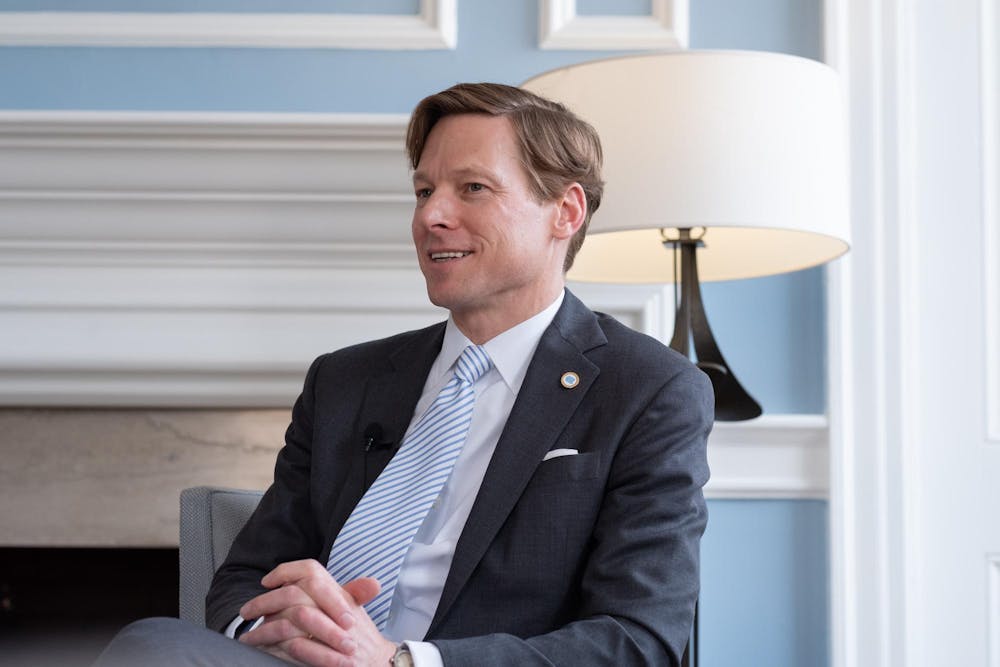On Chancellor Lee Roberts' first day as interim chancellor, University Editor Lauren Rhodes sat down with him to discuss his new role and future plans for navigating ongoing issues at the University.
This interview has been edited for brevity and clarity.
The Daily Tar Heel: Well, I have to start off with the question everyone’s asking: What is it like trading in your Blue Devil horns for Carolina Blue?
Lee Roberts: I had a feeling you'd be asking about that. I am grateful to Duke for first bringing me to North Carolina when I was 17 years old, and I got a fantastic education there. But I'm proof that even Blue Devils can eventually see the light.
DTH: In the past, you worked for former Gov. Pat McCrory and you started your own company, but you don't have any previous professional administrative educational experience. What has happened in your other professional experiences to prepare you for this role?
LR: You're right, I've never worked in a full-time administrative role. I have been around higher education quite a bit. In addition to my time in the classroom [at Duke University], I've served on the UNC Board of Governors, and I was also on the board of our community college system. When I was budget director, I had a lot of exposure to higher education, including the Connect N.C. Bond Referendum, which was the first general obligation bond passed in North Carolina in 15 years. That was a $2 billion bond issue, $1 billion of which went to the UNC System and has funded new construction around the state. Roper Hall is a direct result of that bond initiative. So, I have had a lot of exposure to higher education and that doesn't make me an academic by any stretch, but it's given me tremendous respect for what academics do.
DTH: There are tensions and have been protests on campus concerning the ongoing war in Gaza. How do you plan to approach the dialogue about issues of hate speech versus issues of free speech on campus?
LR: Obviously we have a commitment to the First Amendment both as a legal matter but also as a University. We should stand for open debate and free speech and public inquiry. Those are our core values, a university should be about ideas. There are rules, you can't threaten or intimidate your classmates, you can't shut down speakers, you can't materially interrupt University operations. But within those very broad constraints, we need to have and we have had a very robust dialogue on campus about that issue and every other sensitive political or policy issue of the day, and that's as it should be. I do hope that when we have that dialogue, we can do so in a constructive way, in a way in which we can all learn from each other. This is an institution of learning, so let's have those discussions in as scholarly a manner as possible and maybe try and move away from the shouting and the sloganeering.
DTH: Former Chancellor Kevin Guskiewicz was passionate about the issues of student mental health and campus accessibility. What plans do you have to continue his efforts?




